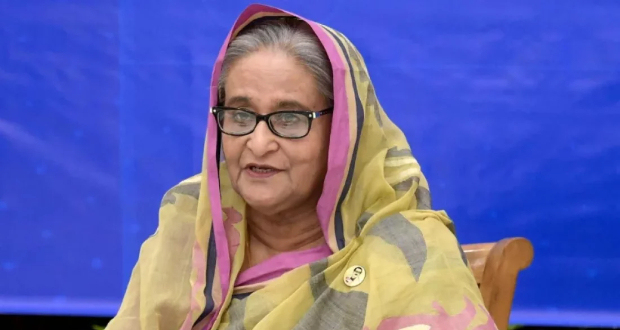"Human connectivity is the lifeline for peace and progress. We must put an end to wars, conflicts, and the arms race," she said.
The prime minister came up with the statement while addressing the opening plenary session of the "Global Gateway Forum" conference at the GGF Conference Hall at her Place of Residence in Brussels.
She also sought European Union (EU)'s continued trade preferences for Bangladesh's smooth LDC graduation.
Describing the EU as a trusted trade, development, and humanitarian partner for Bangladesh, she said, "We seek the EU's continued trade preferences for our smooth LDC graduation".
The premier also urged EU countries to come up with larger investment in Bangladesh particularly in its special economic zones and high-tech parks being built across the country.
She said Bangladesh offers one of the most attractive investment environments in South Asia.
"So, I invite EU investors to explore the facilities in our Special Economic Zones and Hi-Tech Parks," she said.
She also said they have scope for working further on decent work and the circular economy.
The premier, as well, stressed the need for better preparation and restoring mutual respects to tackle future crises as the world has currently been witnessing the ongoing Russia-Ukraine war and Israeli attack on Gaza.
"We need to prepare better for future crises. We must restore faith in mutual respect and understanding among nations," she said.
The prime minister expressed her optimism that the Global Gateway will act as a great connector for lasting peace and sustainable development, wishing all success of the Global Gateway Forum 2023.
She also said Bangladesh is willing to join the EU in promoting green hydrogen.
"We can benefit from the EU's expertise in the sustainable use of marine resources. We need investment in cold chain networks to preserve our agricultural outputs," she said.
The premier said Bangladesh's pharmaceuticals and medical equipment industries can support the EU's efforts for diversifying production.
"We seek partners for our upcoming institutes on frontier technologies," she said.
Sheikh Hasina said Bangladesh's dynamic young population is ready to join the EU's skills and talent partnership programs.
"We trust the Global Gateway will help realize our vision for a 'Smart Bangladesh' by 2041," she said.
The premier said they have fruitful cooperation in security, climate change, and human mobility.
"Our shared values and commitments remain at the heart of our engagements with the EU," she added.
The premier said they officially launched negotiations on a bilateral partnership and cooperation agreement.





